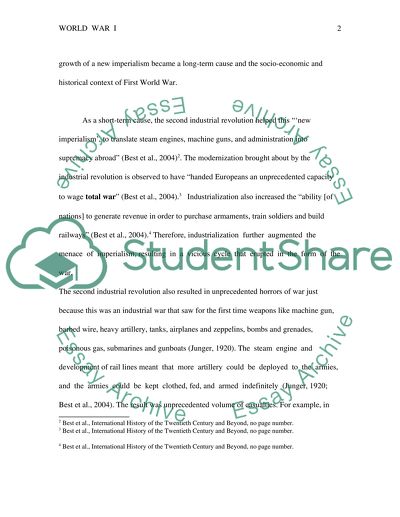Cite this document
(“Causes of World War I Research Paper Example | Topics and Well Written Essays - 1000 words”, n.d.)
Retrieved from https://studentshare.org/history/1446764-causes-of-world-war
Retrieved from https://studentshare.org/history/1446764-causes-of-world-war
(Causes of World War I Research Paper Example | Topics and Well Written Essays - 1000 Words)
https://studentshare.org/history/1446764-causes-of-world-war.
https://studentshare.org/history/1446764-causes-of-world-war.
“Causes of World War I Research Paper Example | Topics and Well Written Essays - 1000 Words”, n.d. https://studentshare.org/history/1446764-causes-of-world-war.


